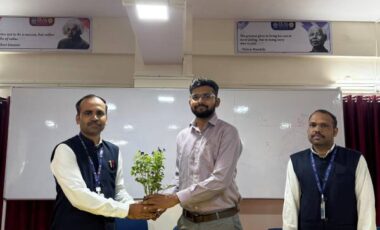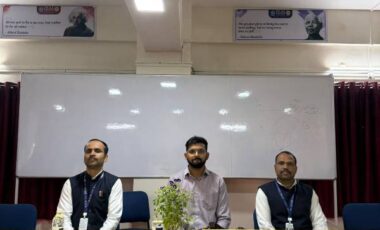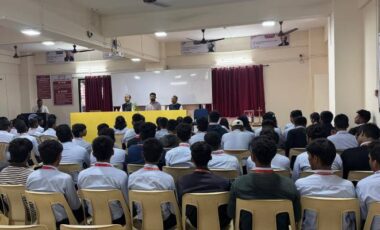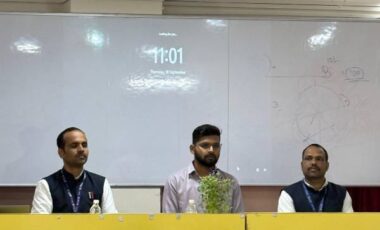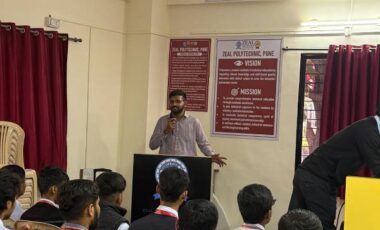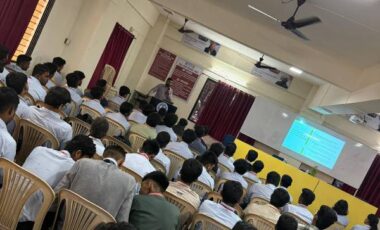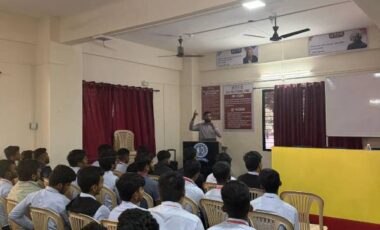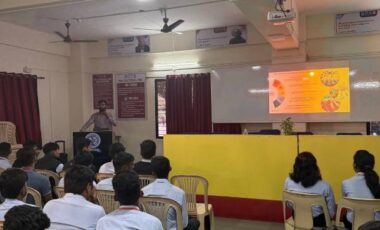Resource Person/ Facilitator:
Mr. Prajyot Lonare,
Manager- Business Analyst,
Olam Global Agri Commodities India Pvt Ltd, Kolhapur, Maharashtra.
Summary:
The expert lecture on “Digital Transformation in Agriculture: From Farm to Global Supply Chain” provided students with valuable insights into how digital technologies are revolutionizing agriculture, enhancing productivity, and integrating farming practices with global supply chain systems. The session emphasized the importance of adopting modern tools and innovations to meet future food demands and ensure sustainable agricultural development.
Key Takeaways:
- Introduction to Thermal Power Plants– Definition, significance, and role in electricity generation.
- Introduction to Digital Agriculture – Definition, significance, and role of technology in modern farming.
- Technological Interventions – Use of IoT, AI, drones, sensors, and big data for precision farming and resource optimization.
- Smart Farming Practices – Soil monitoring, irrigation management, crop health analysis, and automated machinery.
- Digital Market Platforms – Integration of farmers with buyers through e-markets, traceability systems, and global supply chains.
- Benefits & Challenges – Higher efficiency, transparency, profitability, but challenges in adoption, digital literacy, and infrastructure.
- Practical Insights – Real-world examples of digital platforms and agri-tech innovations transforming rural and urban farming practices.
- Future Trends – Expansion of agri-business through AI-driven analytics, block chain for traceability, and sustainable, climate-smart farming solutions.
Objective/Purpose:
- To introduce students to the basic concepts of thermal power generation.
- Provide an understanding of digital agriculture concepts and their relevance in today’s world.
- Explain the integration of technology (IoT, AI, drones, sensors, data analytics) in improving productivity, quality, and sustainability.
- Highlight the linkage between farmers and global supply chains through digital platforms and market systems.
- Emphasize the importance of modern skills and innovation for engineers in addressing agricultural challenges.
Inspire students to explore career opportunities and entrepreneurial ventures in the agri-tech domain.




